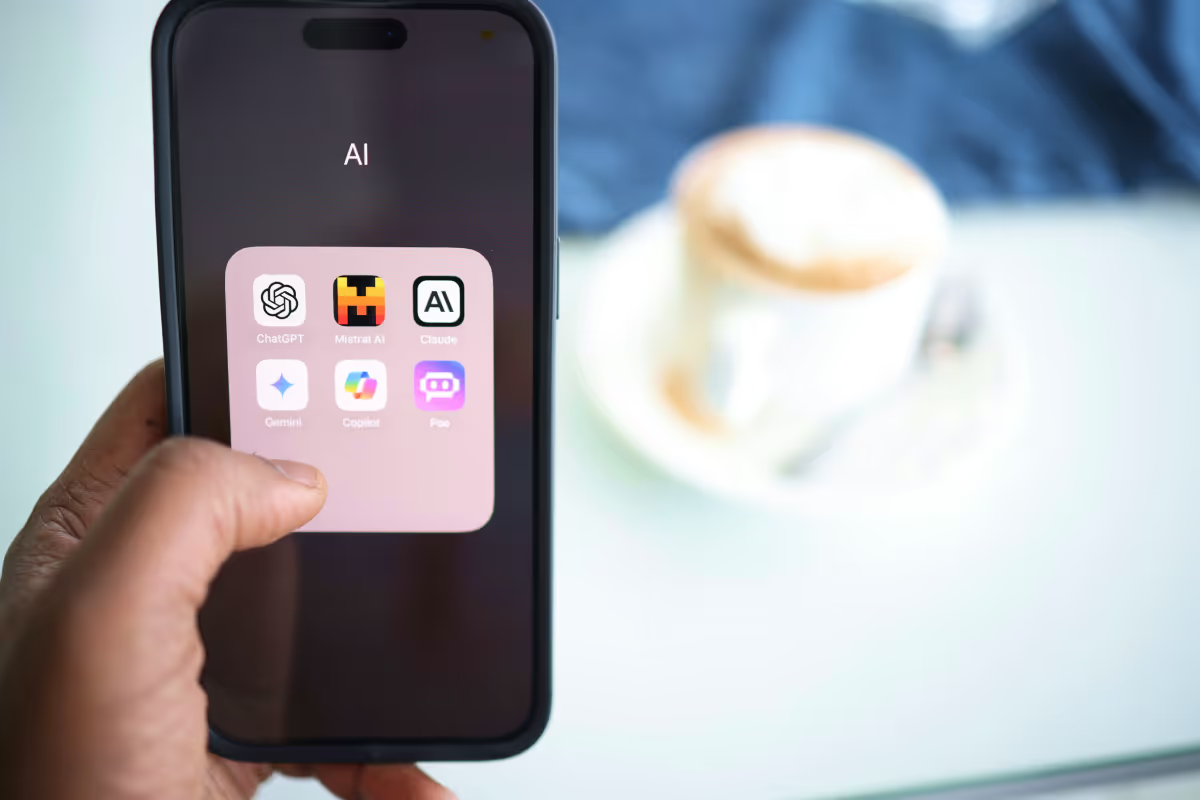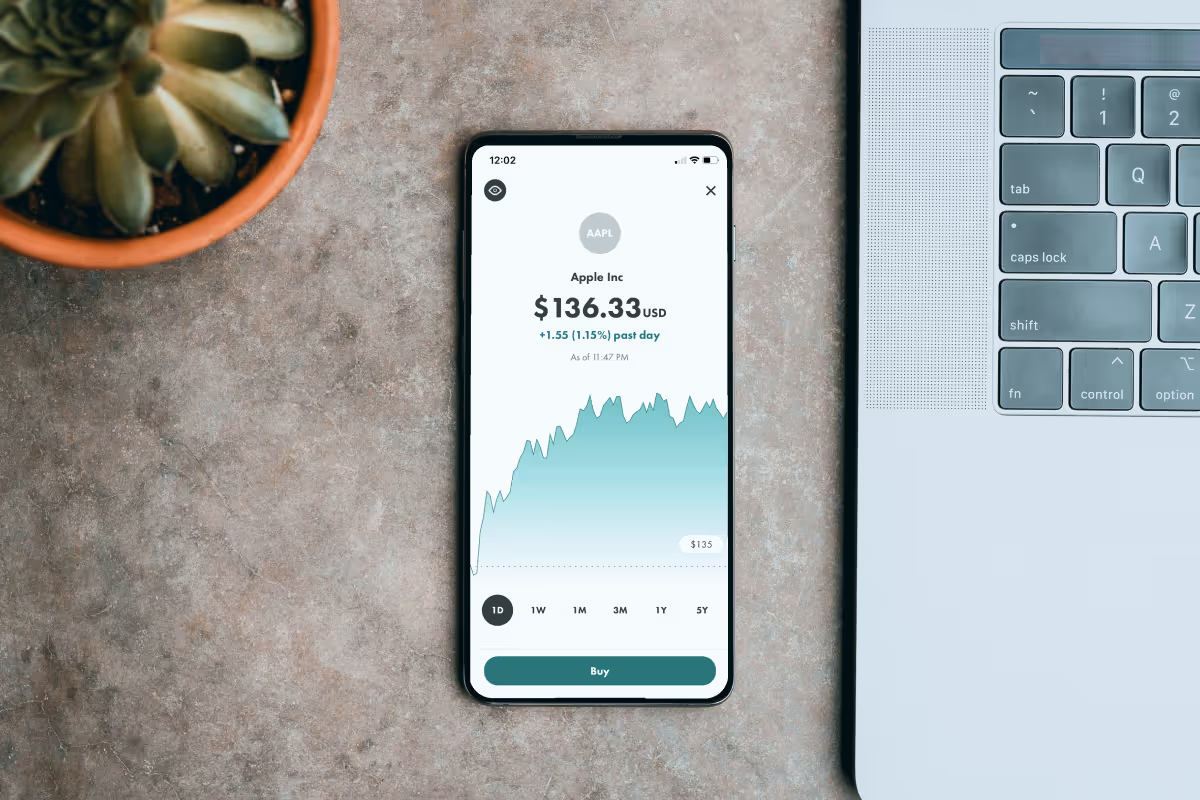From startup conferences and TED Talks to Twitter memes and TikToks, entrepreneurs are looking for an answer to the question "I have an idea for an app, now what?" everywhere.
Yet, over my 7-year entrepreneurship experience, I came to the realistic truth: to move from the "I have an idea for an app" point to a successful product launch, you're going to face lots of uncertainties, such as:
- I have an idea for an app but no money.
- I have an idea for an app but don’t know how to sell it.
- I have an idea for an app but don’t know how to code.
And that's ok. This is what all startup owners passed.
I'm here to share with you what lessons I learned while developing my first product – Plai. I'll also give you tips on what to do with an app idea as we at Uptech have helped 100+ startup owners to pass this journey. I can't promise you a happy-go-lucky startup path after reading this article, but you'll definitely understand exactly what to do when you have an app idea.
I Have an App Idea: 1st-Time Founder VS 2nd-Time Founder
Well, experience has value. This is not to say that first-time founders can’t build huge things. Even studies show no significant difference between the 1st-time and 2nd-time founders regarding startup success.
Founders who have failed previously have a 20% chance of success while 1st-time founders have an 18% chance of success.
Source: embroker.com
But the way they build things differs.
Here’s what 1st-time and 2nd-time founders say to the questions: I have an app idea where do I start?

I’ve been in your skin and know all the uncertainties you face, from ‘I have an idea for an app but no money’ to ‘I have an idea for an app but don’t know how to sell it’. Below I described 7 steps on what to do if an app idea is the only thing you have. There’s a lot to cover, so check it out.
What to Do With an App Idea: Guide for 1st-time Founders
Use this step-by-step guide as a compass in your startup path.

Step 1 – Do the Discovery
When you have an idea for an app, you may be very excited about it, so it becomes easy to fall in love with your idea and don't see its drawbacks. Many first-time entrepreneurs fall into the same trap – they overrate the importance of the problem they are trying to solve.
The #1 reason why startups fail is misreading market demand.
Source: cbinsights.com
The best thing you can do to avoid it is the discovery, which includes:
- Market research – check the market size, its volume, latest statistics, trends, and expert's predictions;
- User research – interview people and check the available data about your target audience, their behavior, habits, etc.
- Competitors research – find your top competitors, analyze their strong and weak sides, and figure out what you can improve or offer extra.
- Formulate your Unique Selling Proposition – based on the gathered info, define WHAT problem you're solving for YOUR target audience, how you'll make money and why clients should chose you over competitors/alternative products.
Uptech Tip: The research stage shouldn't end when the MVP development starts. It should go in parallel.
Discovery saves you a lot of time and money and prevents you from creating a product that is sure to fail. If you have got an idea for an app and are not sure if it succeeds (spoiler: you never can be 100% sure) – do the discovery. Check if your idea is worth it and if you'll be able to build a business out of it.

Step 2 – Get the first LOI/ Early Bird Customers/ Pre-payment
Today, the age of passive consumerism seems to be over. Brands make users be their fans, follow them on social media, and tag them in posts. At the same time, people expect to be engaged beyond the parameters of the product that you're offering. They want to be a part of a community. If you don't know how to market an app idea, create a community around it.
Find 10-100 customers who love your product – is in the YC startup advice list.
But the community is not something you can cultivate overnight. Here's what we did on Plai. When we launched the first, very raw product version, we started contacting companies who might be interested in our product. A product company – Better.Me agreed to sign our first LOI (letter of intent).

Think of LOI as a sign of trust and belief in your idea. We communicated with Better.Me on an ongoing basis, they told us what functionality they lack and what they don't need.
LOI is a common practice among B2B businesses. For B2C products, you have to look for early bird customers, not businesses/companies. And one more option is pre-payment. Telling the truth, pre-payment is more a miracle than a reality in a startup world. Your idea must be so powerful and a problem so painful that a company will agree to pay you money when you just say: I have an app idea but no money. But the idea is GREAT.
Uptech tip: Sharing your area of expertise on socials/internet is a great way to gather a community around your idea. Don't be scared that someone might steal your idea.
You may say I'll be busy building a business, and it's true. You will. But generating and sharing the content about your business idea can help you gather the team, raise awareness, and gather a community around your product.
Step 3 – Gather the team
Proclaiming “I have a great app idea” isn't enough for investors to give you money. The success of a product depends on the funding of the team that builds it. At least, 23% of startups mentioned team as the issue leading to failure. To achieve goals, you need talented individuals who are as committed to the product idea and vision as you are.

How to do that? I see two ways:
- Carefully look at the aspirations of each individual and compare them with the product needs and goals;
- Hire a dedicated outsourcing vendor.
From my experience, the best option for startups is to mix these two options. The core team is your foundation. It must be 100% committed people who share your product vision and create the company's culture, mission, and vision.
A good outsourcing team becomes your gas pedal and a product partner. We at Uptech don't just deliver services to our clients, we become a part of a product, and clients trust us. My recommendation is to improve the grade of the team and choose the dedicated vendor without compromising an inch on the level of professionalism.
.webp)
Step 4 – Create a list of short-term and long-term goals
When you build a startup, it's important to understand where you are and where you are going. A list of short-term and long-term goals comes to the rescue here, and here are two viewpoints to consider:
The product perspective:
- What revenue do we want to have in 3/6/12 months?
- How many paid users do we need to have in 3/6/12 months?
- What is our retention target?
The company perspective:
- What is the company's mission/vision?
- What are the company's values?
- How many people are we planning to hire in 6 months/year?
These two perspectives are connected and help you balance the needs of the business and the users. So if you don't know what to do with an app idea, think of them first. Creating OKRs definitely will come in handy. Btw, check out Plai, it can help you align your team with OKRs, inspire growth with effortless performance, effective 1:1s, feedback and praise.
Step 5 – Build MVP. Test MVP. Iterate
You have made a Discovery, gathered the team, got your first LOI, and shaped the goals. Congrats! It's time to build stuff. The development and design part will not take much time if you have done good homework such as creating user flow, Customer Journey Map (CJM), and feature set. Here’s how we did if for Plai.
When your idea for an app is developed into an MVP, you should iterate it again and again. Based on the user's reaction you implement changes, test them and move in cycles. The only way to figure out how to build something that people need and love is to experiment and gather feedback.
Uptech Tip: Feedback collection is crucial at the stage of MVP product development, and you should start gathering it as soon as possible.

Step 6 – Join startup accelerators/incubators
If you're on the "I have an app idea now what?" stage, applying to startup accelerators or incubators will help a lot. I know it from my own experience.
Long story short, on October 17th, 2019, we received the invitation from Y Combinator to come to an on-site interview in Mountain View. We have worked hard for 2 months to prepare for it, and December 5th – was the BIG day. The 10-minute interview flew by so fast. YC partners asked us about our competitors and the market. In the evening that day, I received an email that Plai is not accepted in batch W2020. "You're clearly a talented team, and we're impressed by how quickly you built and launched Plai. … but we worry that you're not going after a valuable enough segment of the market." – that was the response from Kat Manalac, YC Partner.
Although we got the rejection, I highly recommend every first-time founder to join such startup communities for several reasons:
- The network is extraordinary;
- You receive lots of help, support, and bits of advice;
- You meet people with similar problems and issues;
- You see your weak sides and find points of improvement;
- You make your startup idea more attractive to users and investors.
We did join another accelerator later, Pioneer, and it's been a very valuable experience.
Here’s my top startup incubators and accelerators list.
Top Startup Incubators and Accelerators
- YCombinator
- Techstars
- 500 Startups
- Startupbootcamp
- Harbor Accelerator
- Wayra London
- Founder Friendly Labs
- Google Launchpad Accelerator
- Capital Factory
- Boost VC
- Pioneer

Step 7 – Improve and Scale
Over my startup experience, I've learned many lessons, and one of them is that the best results come when you create a product by moving in cycles — you hypothesize, you test, you improve, and iterate. Once you get it right, you grow the product.
But don't let iteration become a justification for delay. There may be several iterations, but they follow each other quickly. For example, it took us 1.5 months to release the first version of Plai, improve the product, and scale fast.
How to Develop an App Idea: In-house VS Outsourcing
I have an app idea but no programming skills.
I have an idea for an app but don't know how to code.
I've heard it many times from 1st-time founders, so I decided to devote a separate block and share the best 2 ways (IMHO) how to get an app idea developed.
In-house Development
In-house development is where you build a team from scratch. You should go through the process of recruiting, interviews, and onboarding, to build your own IT team. Amazon and Paypal hire in-house developers, which allows them total control of the project, but at a higher cost. In-house development can be beneficial in several ways:
- You hire a team aligned with your company's culture;
- You have your team sitting next to you;
- You have immediate support;
- You have total control of the project.
If your startup strictly focuses on an IT product, it may be viable to hire in-house. But mind that hiring the full team in-house can be costly in terms of time and money.
Here’s a sneak peek at the salary range in Europe, US and Asia.

Outsourcing Development
According to the 2022 State of Tech Staffing report, the number of startups that outsource software development services is expected to increase by 70% in the next year.
The respondent also named what top IT outsourcing benefits they found:
- Higher productivity (53%)
- Cost-saving (33%)
- Better cross-team collaboration (32%)
- Better employee health (29%)
- Expanded talent pool (27%)
Startups that don't consider outsourcing are likely to move slowly, spend more, and miss the chance to work with professionals with unique expertise worldwide. Among well-known startups that outsourced are GitHub, Slack, Upwork, and more. Outsourcing is a great opportunity if you have an app idea but lack human and money resources.
Final Word
It all often starts with "I have an idea for an app. Yey!" but things become complicated when it comes to how to get an app idea developed. Especially if it's your first time developing a product. Many questions arise, and you can spend days not knowing what to do next.
I have rounded up 7 steps of what to do if you have an idea for an app and shared my experience with Plai. Of course, your way will differ as well as mistakes, wins and lessons learned. It's important to learn from them and have a great team aside. Uptech can become your trusted partner. We've worked with 100+ startups helping them develop products that people love. Feel free to check out our portfolio or drop us a line if you have an idea for an app but don't know where to start.












































































.avif)























